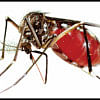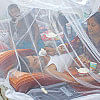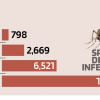A nation off-guard: Why is dengue still a non-issue?

As Bangladesh witnesses the unfolding of what is now certain to be the deadliest year in its history of handling dengue, the official response continues to betray a strange indifference. At least 167 people have died so far in 2023 – 120 of them in July – signalling a rapid, uncontrolled spike even before the start of the so-called peak season for dengue. That alone should have set all alarm bells ringing, and all policy guns blazing, towards the single purpose of neutralising this threat. But that was not to be.
Instead, for two weeks now, we've had to contend with the oppressive banality of the political class trading blame for the present deadlock in the country, loudly professing their love for "democracy" and "fair elections," but then allowing street violence to resurface with a vengeance, all the while trying to explain their choices in as whimsical a way as US politician Mitt Romney once did: that "I believe in an America where millions of Americans believe in an America that's the America millions of Americans believe in." And while they were at it, dengue, silently but surely, started to wreak havoc.
The question is: Can we respond to a public health crisis with the same urgency as the crisis over our electoral future? Of course, this wouldn't be a question for countries where public institutions are designed to function on their own regardless of what is happening on the political front. But ours is a deeply centralised, cumbersome administrative system where everyone looks up to the top floor for any decision. Even when political interests and those of the administration are not at odds, the former have a way of bleeding relentlessly into the latter, slowing and disrupting its progress, and it doesn't help that there is little institutional accountability to control outcomes. We have seen the same thing happening to our pandemic response as well.
True, the Directorate General of Health Services (DGHS) has been trying to shore up hospitals and pathology labs to accommodate the influx of dengue patients. The city corporations, under pressure to deliver results, are trying to raise public awareness, and spraying and fogging as much as they can. But it is difficult to ignore the perfunctory vibe that their initiatives give off, bereft of any sense of urgency. Somehow, dengue still seems to be a non-issue in policy circles – it is deemed less of a threat even in its prime than the Covid-19 outbreak was in its early days. Health officials, despite the record-breaking rise in single-day rates of both dengue fatalities and hospitalisations, don't think the situation has reached the level of a public health emergency. This lack of a sense of urgency is further evident in how the authorities have been delaying the formulation of a national vector control policy which, along with an integrated vector management system, could be a vital tool in their arsenal.
As if confused by such mixed signals, the education authorities saw it fit to cancel the summer vacation for primary and secondary educational institutions, even though it would have helped contain the spread of dengue to some extent.
Similarly, seldom would you see ruling party leaders speak out against our poor dengue response. When politicians speak, it is usually to berate the public for their lack of awareness, as if this is where the buck stops. Even those specifically in charge of handling dengue, such as the DSCC mayor, who is currently on a 17-day trip to Europe despite the alarming situation in his territory, have failed to rise to the occasion. The mayor, when he was at home and wasn't busy pushing his party agenda – remember his impassioned vow to "show you what a fair election is, and how many types there are, come January" – had little to show for his sincerity or seriousness as city father, setting off anti-dengue protests in some areas.
In such a climate, it is not just the health and lives of citizens that are at risk. What we do today will hugely impact the future of the disease in this country. We can either set the ground for an even deadlier 2024, as we did to worsen our plight this year – through lack of early action in late 2022 and early 2023 – or we can stop being reactive and prepare for the threat that dengue is now: a year-long menace no longer bound to a peak season. The choice between being caught off-guard and being match-fit – to borrow from sporting terminology – is ours.
We are not alone in this fight, and can learn a thing or two from other countries and places that have been successful, including Kolkata, which has shown tremendous results. If they can do it – through targeted and concerted interventions – why can't we?
Part of the preparation for the future is to understand what went wrong. There is no doubt that the ongoing dengue menace was caused primarily by a perfect storm of poor surveillance, insufficient mosquito-control measures, inadequate manpower and treatment facilities, unplanned urbanisation with unchecked construction, bureaucratic botch-ups, and the absence of a central policy or command to tackle dengue. We have talked about these problems for years now, but the higher authorities have repeatedly failed to do the needful.
As I write this, news has emerged that the World Health Organization (WHO) warned that the global dengue situation might break all previous records this year, with about half of the world population being at risk. Bangladesh is at the forefront of this risk. By all indications, we have never faced a threat of this proportion. We must respond accordingly.
Right now, what we need to do urgently is declare the dengue situation a public health emergency. This will send a proper message to the people, but should also allow for a better mobilisation of resources, policy alignments, central coordination, and a quick and unified response. Waiting for the situation to worsen further before acknowledging its gravity can have disastrous consequences. We are not alone in this fight, and can learn a thing or two from other countries and places that have been successful, including Kolkata, which has shown tremendous results. If they can do it – through targeted and concerted interventions – why can't we?
Badiuzzaman Bay is assistant editor at The Daily Star.


 For all latest news, follow The Daily Star's Google News channel.
For all latest news, follow The Daily Star's Google News channel. 











Comments